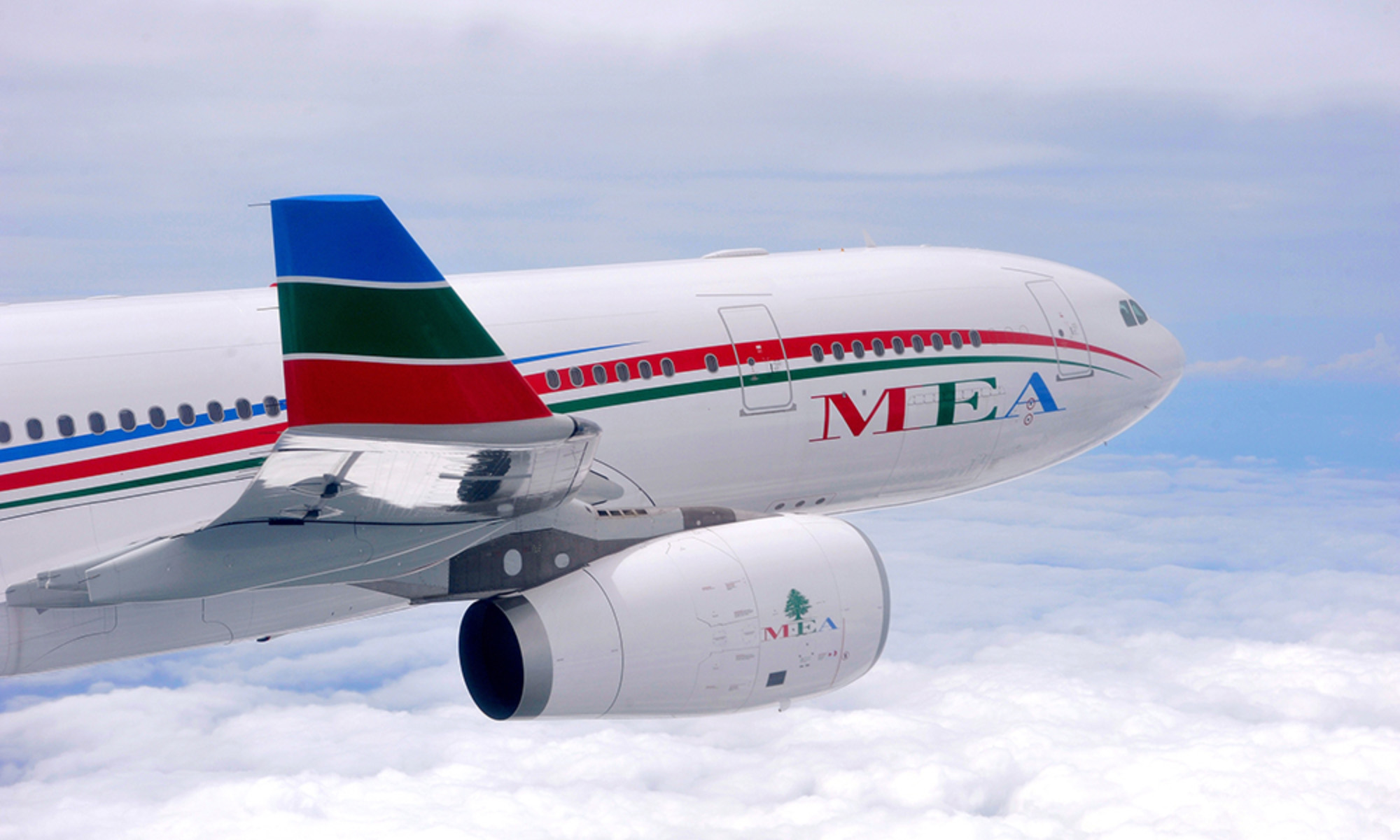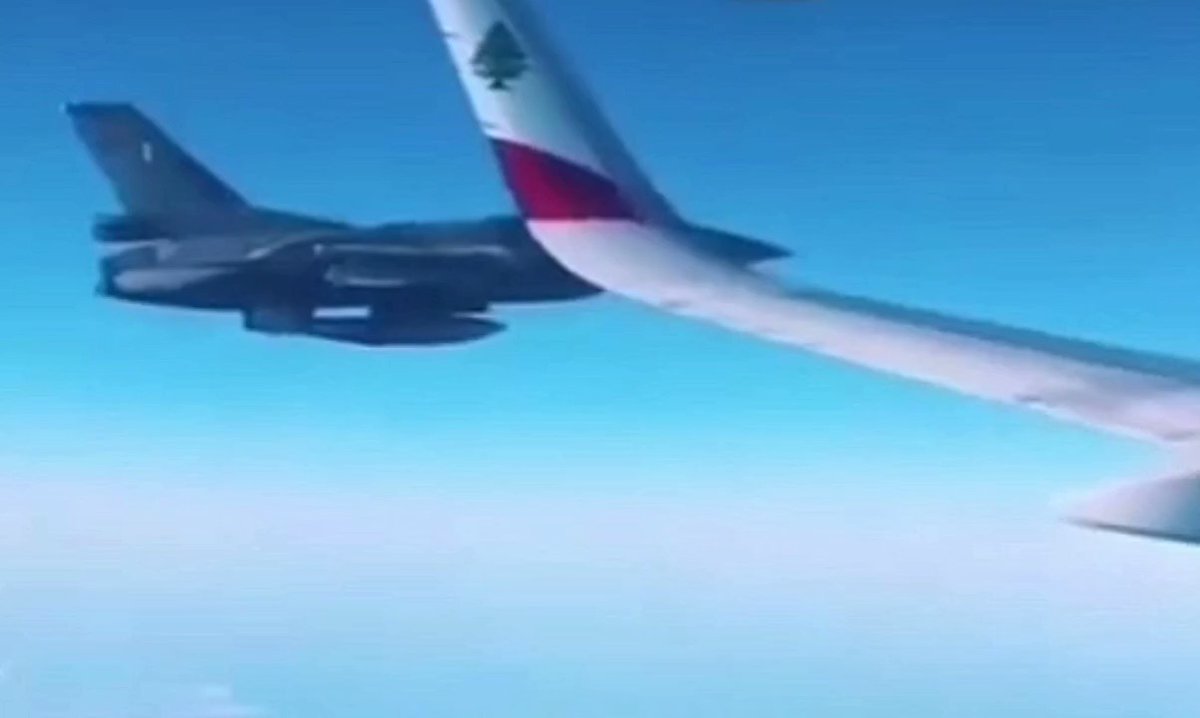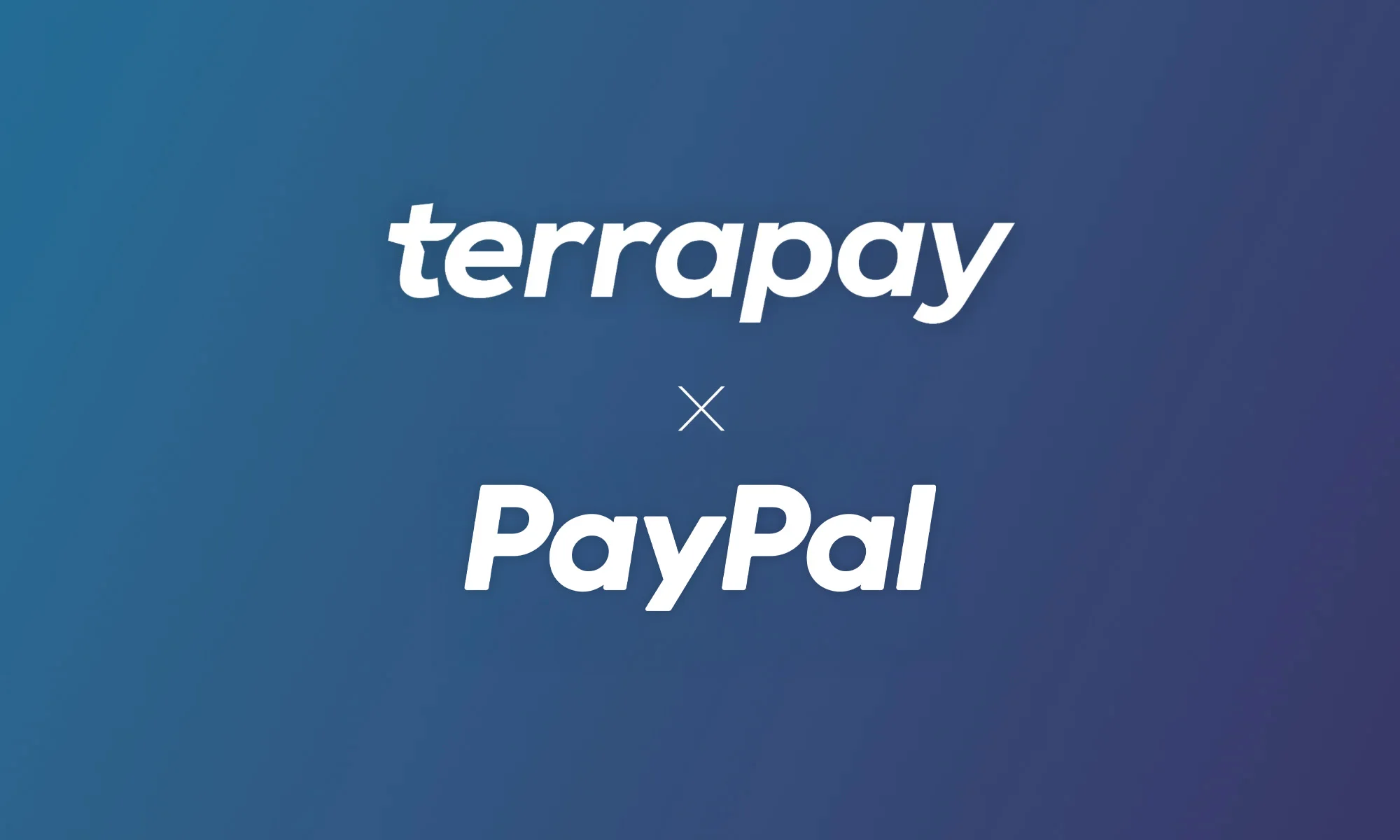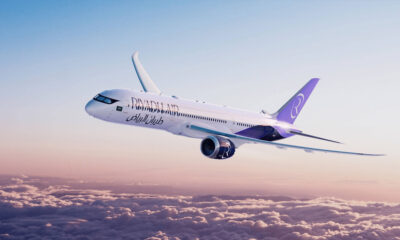News
Greek F-16 Fighter Jets Intercept Beirut-Bound MEA Flight
The Lebanese pilot is thought to have used an incorrect radio frequency — a major blunder from the son of the airline’s chairman.

A “Code Renegade” alert recently set Greek aviation authorities on high alert following a warning issued by a NATO air control center in Torrejón, Spain. Code Renegade is a distress signal typically used in a hijacking situation. In this case, the code was issued after a Middle Eastern Airlines (MEA) flight bound for Beirut failed to answer calls and went into complete radio silence.
After repeated attempts to speak to the aircraft’s captain, authorities began to worry about the plane’s safety status, which eventually caused Greek air defense to scramble two F-16 fighter jets from Souda to intercept the unresponsive civilian airliner over Argolida in the northeastern Peloponnese.

Lebanon-based aircraft tracker InterSky, took to Twitter to report the details of the unfolding situation:
“Code Renegade set Greek authorities on alert following a relevant signal by the NATO air control center in Spain (CAOC Torrejón), to intercept a non-responsive civil aircraft Airbus A321 with 145 passengers onboard that had taken off from Madrid and was bound for Beirut.”
Also Read: Emirates Airline To Invest $2 Billion On Major Upgrades
In a further twist to the story, contact was eventually reestablished with the aircraft, after which it was revealed that the MEA pilot, Abed Al-Hout, was the son of Mohammed Al-Hout, chairman of the board of directors of Middle East Airlines. The chairman has previously received criticism for employing relatives at various levels of the company, and in this instance, his son had failed to set the communication instruments to the correct frequency, resulting in radio silence.
The news is a further embarrassing blow for Middle East Airlines, which has recently lost over 20% of staff to other airlines, as Lebanon’s financial crisis continues to deepen.
News
PayPal & TerraPay Join Forces For Cross-Border MENA Payments
The collaboration will be especially helpful in regions where traditional banking infrastructure is limited or inconsistent.

PayPal has teamed up with TerraPay to improve cross-border payments across the Middle East and Africa. The move is designed to make it easier and faster for users to send and receive money internationally, especially in regions where traditional banking infrastructure can be limited or inconsistent.
The partnership connects PayPal’s digital payments ecosystem with TerraPay’s global money transfer network. The goal is to streamline real-time transfers between banks, mobile wallets, and financial institutions, significantly improving access for millions of users looking to move money securely and efficiently.
Through the partnership, users will be able to link their PayPal accounts to local banks and mobile wallets using TerraPay’s platform. This means faster transactions and fewer barriers for individuals and businesses across the region.
“The Middle East and Africa are at the forefront of the digital transformation, yet financial barriers still limit growth for many,” said Otto Williams, Senior Vice President, Regional Head and General Manager, Middle East and Africa at PayPal. “At PayPal, we’re committed to changing that […] Together, we’re helping unlock economic opportunity and build a more connected, inclusive financial future”.
For TerraPay, the deal is a chance to scale its reach while reinforcing its mission of frictionless digital transactions.
“Our mission at TerraPay is to create a world where digital transactions are effortless, secure, and accessible to all,” said Ani Sane, Co-Founder and Chief Business Officer at TerraPay. He added that the partnership is a major milestone for enhancing financial access in the Middle East and Africa, helping businesses grow and users move funds with fewer limitations.
Also Read: A Guide To Digital Payment Methods In The Middle East
The integration also aims to support financial inclusion in a region where access to global banking tools is still uneven. With interoperability at the core, TerraPay can bridge the gap between different financial systems — whether that’s a mobile wallet or a traditional bank — making it easier to send money, pay for services, or grow a business across borders.
As the demand for cross-border payment options continues to rise, both PayPal and TerraPay are doubling down on their commitment to provide reliable, secure, and forward-looking financial tools for the region.

























